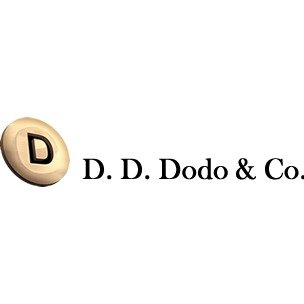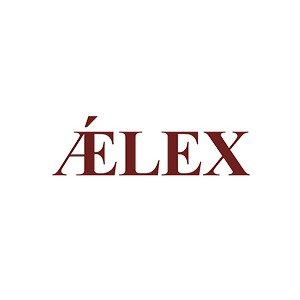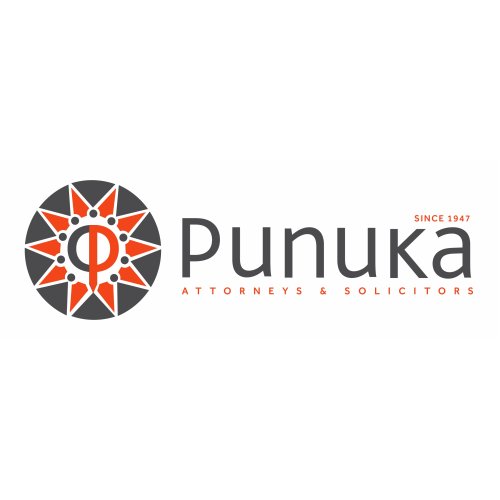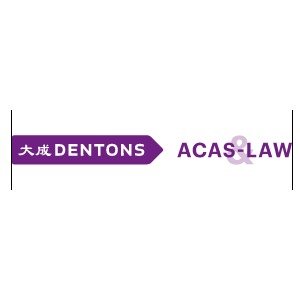Best Outsourcing Lawyers in Nigeria
Share your needs with us, get contacted by law firms.
Free. Takes 2 min.
Or refine your search by selecting a city:
List of the best lawyers in Nigeria
About Outsourcing Law in Nigeria
Outsourcing in Nigeria refers to the practice of contracting out business processes and functions to third-party service providers. This business strategy has gained prominence as companies strive to enhance operational efficiency and reduce costs. Key sectors involved in outsourcing include IT services, customer support, human resource management, and manufacturing. The legal landscape surrounding outsourcing in Nigeria is shaped by various aspects of contract law, employment law, data protection, and industry-specific regulations.
Why You May Need a Lawyer
Engaging a lawyer for outsourcing matters is crucial for navigating potential legal complexities. Common situations where legal assistance may be required include:
- Drafting and negotiating outsourcing contracts to ensure compliance with local laws and protect business interests.
- Resolving disputes related to service delivery, quality, or contractual breaches.
- Ensuring adherence to data protection regulations, especially for outsourcing services involving personal data.
- Understanding tax implications and regulatory requirements specific to outsourcing transactions.
- Advising on employment laws to manage workforce transitions effectively when outsourcing business functions.
Local Laws Overview
The legal framework for outsourcing in Nigeria includes several critical pieces of legislation and regulatory guidelines:
- Contract Law: Governs the creation and enforcement of contracts, crucial in formulating outsourcing agreements.
- Labour Act: Regulates employment relationships which can be affected during outsourcing activities.
- National Office for Technology Acquisition and Promotion (NOTAP) Act: Manages the use of foreign technology and is relevant if outsourcing involves technology transfer.
- Nigerian Data Protection Regulation (NDPR): Provides guidelines for the handling of personal data, especially when it crosses borders.
- Tax Implications: Vary depending on the structure of the outsourcing deal and may involve VAT or other taxes.
Frequently Asked Questions
What is outsourcing in the context of Nigerian business?
Outsourcing involves delegating certain business functions to external service providers, which can help companies focus on core activities and achieve cost savings.
Do outsourcing agreements need to be in writing?
While not legally mandatory, a written contract is strongly advised to clearly define the terms, conditions, obligations, and expectations of both parties involved.
What should be included in an outsourcing contract?
Key elements include scope of services, payment terms, confidentiality obligations, data protection clauses, termination conditions, and dispute resolution mechanisms.
How does outsourcing impact employment laws?
Outsourcing can affect employment contracts, job security, and employee benefits. Understanding the Nigeria Labour Act is vital when negotiating workforce transitions.
Are there specific regulations for outsourcing IT services?
Yes, IT outsourcing is subject to data protection regulations and may also require compliance with technology licensing laws under NOTAP.
What are the tax considerations in outsourcing?
Tax implications can depend on the nature of the services outsourced and the structure of the agreement, potentially involving withholding tax, VAT, and other levies.
Can disputes arising from outsourcing be resolved through arbitration?
Yes, arbitration is a common mechanism for resolving disputes in outsourcing agreements, providing a private and structured dispute resolution method.
What role does the NDPR play in outsourcing?
NDPR sets out obligations for protecting personal data, which is crucial if the outsourcing involves handling customer or employee data.
Is government approval required for outsourcing certain services?
Government approval may be necessary for outsourcing involving financial services, telecommunications, or technology transfer agreements.
How do I choose a reliable outsourcing provider?
Conduct thorough diligence on potential providers, evaluate their track record, financial stability, compliance with industry standards, and ability to meet legal and contractual obligations.
Additional Resources
For further information and assistance regarding outsourcing in Nigeria, consider consulting the following resources:
- National Office for Technology Acquisition and Promotion (NOTAP)
- Nigerian Communications Commission (NCC)
- Federal Inland Revenue Service (FIRS)
- Data Protection Regulation frameworks and guidelines
- Nigerian Bar Association for finding specialized legal practitioners
Next Steps
If you require legal assistance in outsourcing, consider taking the following steps:
- Conduct an initial assessment of your outsourcing needs and potential legal issues.
- Consult with a lawyer who specializes in outsourcing and relevant areas such as contract, employment, and data protection law.
- Gather all necessary documents related to the intended outsourcing deal.
- Discuss your objectives and any concerns with legal counsel to receive tailored advice.
- Ensure that any agreement or legal documentation accurately reflects your interests and is compliant with Nigerian laws.
Lawzana helps you find the best lawyers and law firms in Nigeria through a curated and pre-screened list of qualified legal professionals. Our platform offers rankings and detailed profiles of attorneys and law firms, allowing you to compare based on practice areas, including Outsourcing, experience, and client feedback.
Each profile includes a description of the firm's areas of practice, client reviews, team members and partners, year of establishment, spoken languages, office locations, contact information, social media presence, and any published articles or resources. Most firms on our platform speak English and are experienced in both local and international legal matters.
Get a quote from top-rated law firms in Nigeria — quickly, securely, and without unnecessary hassle.
Disclaimer:
The information provided on this page is for general informational purposes only and does not constitute legal advice. While we strive to ensure the accuracy and relevance of the content, legal information may change over time, and interpretations of the law can vary. You should always consult with a qualified legal professional for advice specific to your situation.
We disclaim all liability for actions taken or not taken based on the content of this page. If you believe any information is incorrect or outdated, please contact us, and we will review and update it where appropriate.
Browse outsourcing law firms by city in Nigeria
Refine your search by selecting a city.
















